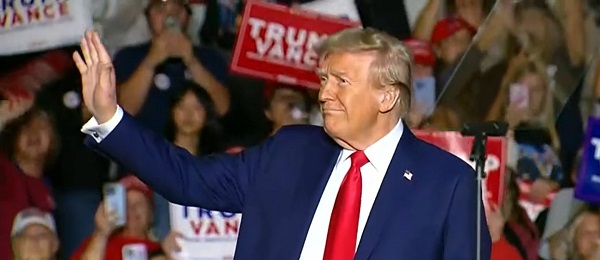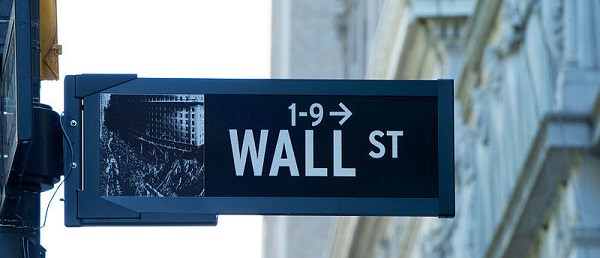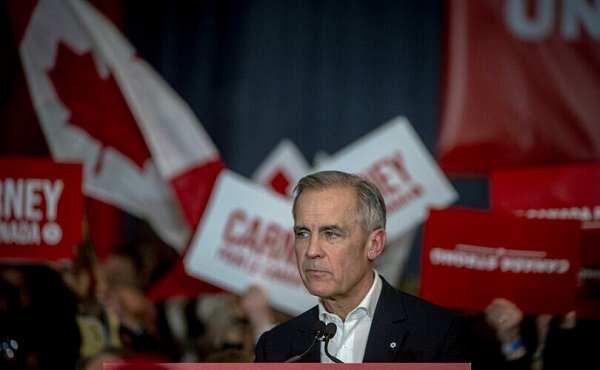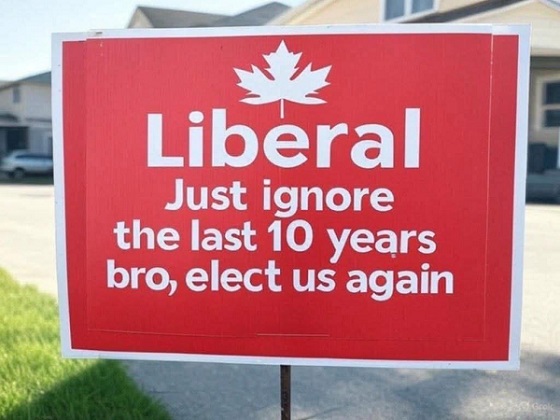Daily Caller
Here’s How Leaders From Around The World Responded To Trump’s Victory

From the Daily Caller News Foundation
By Jake Smith
Following President-elect Donald Trump’s sweeping victory in the U.S. presidential elections on Tuesday, several leaders from countries around the world offered their responses — some more congratulatory in nature than others.
Trump made a historical comeback from his loss in 2020 and swept the electoral vote by at least a 277-224 margin, while also taking the popular vote by nearly five million votes, according to multiple reports. World leaders were closely watching the election — as Harris’ and Trump’s approach to foreign policy varies widely — and offered compliments on his victory, while other nations typically considered American adversaries seemed to take a more muted and cautionary tone.
“Italy and the United States are ‘sister’ nations, linked by an unshakable alliance, common values, and a historic friendship,” Italian Prime Minister Giorgia Meloni said in a statement on Wednesday. “It is a strategic bond, which I am sure we will now strengthen even further.”
“Congratulations on history’s greatest comeback!” Israeli Prime Minister Benjamin Netanyahu said on Wednesday.
“The future of the [South Korea]-U.S. alliance and America will shine brighter. Look forward to working closely with you,” South Korean Prime Minister Toon Suk Yeol said on Wednesday.
Other world leaders that Trump differs from vastly on politics — including Canada and the U.K. — also offered compliments to Trump on his win, even as Trump has publicly criticized their left-wing policies.
“I know President Trump and I will work together to create more opportunity, prosperity, and security for both of our nations,” Canadian Prime Minister Justin Trudeau said on Wednesday.
Most European Union (EU) nations applauded Trump’s victory, though some countries signaled that Europe needs to be ready to rely more closely on itself. Trump’s “America First” approach has been popular among swaths of the American electorate but has left some European countries nervous that Trump may take a different approach than President Joe Biden’s seemingly no-holds-barred relationship with Europe in recent years.
During his first term, Trump had a sometimes tense relationship with some European countries, as he felt that they contributed to the U.S.’ global trade imbalance and weren’t paying enough to be part of the NATO alliance. Trump on multiple occasions has threatened to pull the U.S. out of NATO unless European countries pay their agreed share.
Trump’s threat was successful — a higher number of NATO allies met their defense spending goals at the end of his term than at the beginning.
“The European Union must stand close together and act in a united manner,” Scholz told reporters on Wednesday, noting that he and Macron were working closely with other European partners.
China offered few remarks on Trump’s win, while other adversaries such as Iran and North Korea have yet to publicly comment on the matter, although Tehran has made it clear it does not want another Trump term. Chinese officials have reportedly feared the policies of another Trump term compared to a Harris presidency and actively interfered in this year’s elections.
“We respect the choice of the American people and congratulate Mr. Trump on being elected as president of the United States,” a Chinese Foreign Ministry spokesman said on Wednesday.
Russia’s message on the election appeared more veiled and hostile. Russian President Vladimir Putin does apparently not plan to offer any congratulations to Trump, Kremlin spokesman Dmitri Peskov told reporters on Wednesday, arguing that the U.S. is “an unfriendly country that is both directly and indirectly involved in the war against our state.”
“We have repeatedly said that the U.S. is able to contribute to the end of this conflict. This cannot be done overnight, but… the U.S. is capable of changing the trajectory of its foreign policy. Will this happen, and if so, how … we will see after (the U.S. president’s inauguration in) January,” Peskov said.
Russia has waged war against Ukraine since 2022 and has dragged the U.S. and Europe deeper and deeper into the conflict. Biden has failed to significantly alter the course of the war; Trump has vowed that he could strike a peace settlement between Russia and Ukraine by the time he reaches office in January.
Similarly, Trump has promised that the ongoing conflict in the Middle East — which was borne out of Hamas’ invasion on Oct. 7, 2023 — by the time he takes office in January, warning that he will treat Iran far more harshly than Biden has and will impose sanctions to ensure Tehran cannot build its funding reserves. Trump spoke to Netanyahu in July and reportedly told him that the war in Gaza needs to end by January, potentially in a bid to reestablish some norms between the Israelis and the Palestinians.
On China, Trump has promised fair competition but warned that he will impose stricter tariffs in a bid to balance the trade deficit, encourage Americans to buy more domestic goods and compel China to import more American products.
Business
Scott Bessent Says Trump’s Goal Was Always To Get Trading Partners To Table After Major Pause Announcement


From the Daily Caller News Foundation
By
Secretary of the Treasury Scott Bessent told reporters Wednesday that President Donald Trump’s goal was to have major trading partners agree to negotiate after Trump announced a 90-day pause on reciprocal tariffs for many countries after dozens reached out to the administration.
Trump announced the pause via a Wednesday post on Truth Social that also announced substantial increases in tariffs on Chinese exports to the United States, saying 75 countries had asked to talk. Bessent said during a press event held alongside White House press secretary Karoline Leavitt that Trump had obtained “maximum leverage” to get trading partners to negotiate with the April 2 announcement of reciprocal tariffs.
“This was his strategy all along,” Bessent told reporters during an impromptu press conference at the White House. “And that, you know, you might even say that he goaded China into a bad position. They, they responded. They have shown themselves to the world to be the bad actors. And, and we are willing to cooperate with our allies and with our trading partners who did not retaliate. It wasn’t a hard message: Don’t retaliate, things will turn out well.”
Dear Readers:
As a nonprofit, we are dependent on the generosity of our readers.
Please consider making a small donation of any amount here.
Thank you!
WATCH:
China imposed retaliatory tariffs on American exports to the communist country Wednesday, imposing an 84% tariff on U.S. goods after Trump responded to a 34% tariff by taking American tariffs to 104%.
“Based on the lack of respect that China has shown to the World’s Markets, I am hereby raising the Tariff charged to China by the United States of America to 125%, effective immediately,” Trump said. “At some point, hopefully in the near future, China will realize that the days of ripping off the U.S.A., and other Countries, is no longer sustainable or acceptable.”
“They kept escalating and escalating, and now they have 125% tariffs that will be effective immediately,” Bessent said during the press conference.
Bessent said that China’s actions would not harm the United States as much as it would their own economy.
“We will see what China does,” Bessent said. “But what I am certain of, what I’m certain of, is that what China is doing will affect their economy much more than it will ours, because they have an export-driven, flood the world with cheap export model, and the rest of the world now understands.”
The Dow Jones Industrial average closed up 2,962.86 points Wednesday, with the NASDAQ climbing by 1,755.84 points and the S&P 500 rising 446.05 points, according to FoxBusiness.
Banks
Wall Street Clings To Green Coercion As Trump Unleashes American Energy


From the Daily Caller News Foundation
By Jason Isaac
The Trump administration’s recent move to revoke Biden-era restrictions on energy development in Alaska’s North Slope—especially in the Arctic National Wildlife Refuge (ANWR)—is a long-overdue correction that prioritizes American prosperity and energy security. This regulatory reset rightly acknowledges what Alaska’s Native communities have long known: responsible energy development offers a path to economic empowerment and self-determination.
But while Washington’s red tape may be unraveling, a more insidious blockade remains firmly in place: Wall Street.
Despite the Trump administration’s restoration of rational permitting processes, major banks and insurance companies continue to collude in starving projects of the capital and risk management services they need. The left’s “debanking” strategy—originally a tactic to pressure gun makers and disfavored industries—is now being weaponized against American energy companies operating in ANWR and similar regions.
Dear Readers:
As a nonprofit, we are dependent on the generosity of our readers.
Please consider making a small donation of any amount here. Thank you!
This quiet embargo began years ago, when JPMorgan Chase, America’s largest bank, declared in 2020 that it would no longer fund oil and gas development in the Arctic, including ANWR. Others quickly followed: Goldman Sachs, Wells Fargo, and Citigroup now all reject Arctic energy projects—effectively shutting down access to capital for an entire region.
Insurers have joined the pile-on. Swiss Re, AIG, and AXIS Capital all publicly stated they would no longer insure drilling in ANWR. In 2023, Chubb became the first U.S.-based insurer to formalize its Arctic ban.
These policies are not merely misguided—they are dangerous. They hand America’s energy future over to OPEC, China, and hostile regimes. They reduce competition, drive up prices, and kneecap the very domestic production that once made the U.S. energy independent.
This isn’t just a theoretical concern. I’ve experienced this discrimination firsthand.
In February 2025, The Hartford notified the American Energy Institute—an educational nonprofit I lead—that it would not renew our insurance policy. The reason? Not risk. Not claims. Not underwriting. The Hartford cited our Facebook page.
“The reason for nonrenewal is we have learned from your Facebook page that your operations include Trade association involved in promoting social/political causes related to energy production. This is not an acceptable exposure under The Hartford’s Small Commercial business segment’s guidelines.”
That’s a direct quote from their nonrenewal notice.
Let’s be clear: The Hartford didn’t drop us for anything we did—they dropped us for what we believe. Our unacceptable “exposure” is telling the truth about the importance of affordable and reliable energy to modern life, and standing up to ESG orthodoxy. We are being punished not for risk, but for advocacy.
This is financial discrimination, pure and simple. What we’re seeing is the private-sector enforcement of political ideology through the strategic denial of access to financial services. It’s ESG—Environmental, Social, and Governance—gone full Orwell.
Banks, insurers, and asset managers may claim these decisions are about “climate risk,” but they rarely apply the same scrutiny to regimes like Venezuela or China, where environmental and human rights abuses are rampant. The issue is not risk. The issue is control.
By shutting out projects in ANWR, Wall Street ensures that even if federal regulators step back, their ESG-aligned agenda still moves forward—through corporate pressure, shareholder resolutions, and selective financial access. This is how ideology replaces democracy.
While the Trump administration deserves praise for removing federal barriers, the fight for energy freedom continues. Policymakers must hold financial institutions accountable for ideological discrimination and protect access to banking and insurance services for all lawful businesses.
Texas has already taken steps by divesting from anti-energy financial firms. Other states should follow, enforcing anti-discrimination laws and leveraging state contracts to ensure fair treatment.
But public pressure matters too. Americans need to know what’s happening behind the curtain of ESG. The green financial complex is not just virtue-signaling—it’s a form of economic coercion designed to override public policy and undermine U.S. sovereignty.
The regulatory shackles may be coming off, but the private-sector blockade remains. As long as banks and insurers collude to deny access to capital and risk protection for projects in ANWR and beyond, America’s energy independence will remain under threat.
We need to call out this hypocrisy. We need to expose it. And we need to fight it—before we lose not just our energy freedom, but our economic prosperity.
The Honorable Jason Isaac is the Founder and CEO of the American Energy Institute. He previously served four terms in the Texas House of Representatives.
-

 John Stossel2 days ago
John Stossel2 days agoGovernment Gambling Hypocrisy: Bad Odds and No Competition
-

 2025 Federal Election2 days ago
2025 Federal Election2 days agoMark Carney pledges another $150 million for CBC ahead of federal election
-

 Alberta2 days ago
Alberta2 days agoAlberta’s embrace of activity-based funding is great news for patients
-

 2025 Federal Election1 day ago
2025 Federal Election1 day agoCommunist China helped boost Mark Carney’s image on social media, election watchdog reports
-

 2025 Federal Election16 hours ago
2025 Federal Election16 hours agoRCMP memo warns of Chinese interference on Canadian university campuses to affect election
-

 2025 Federal Election1 day ago
2025 Federal Election1 day agoFifty Shades of Mark Carney
-

 Alberta1 day ago
Alberta1 day agoAlberta takes big step towards shorter wait times and higher quality health care
-

 2025 Federal Election6 hours ago
2025 Federal Election6 hours agoResearchers Link China’s Intelligence and Elite Influence Arms to B.C. Government, Liberal Party, and Trudeau-Appointed Senator









